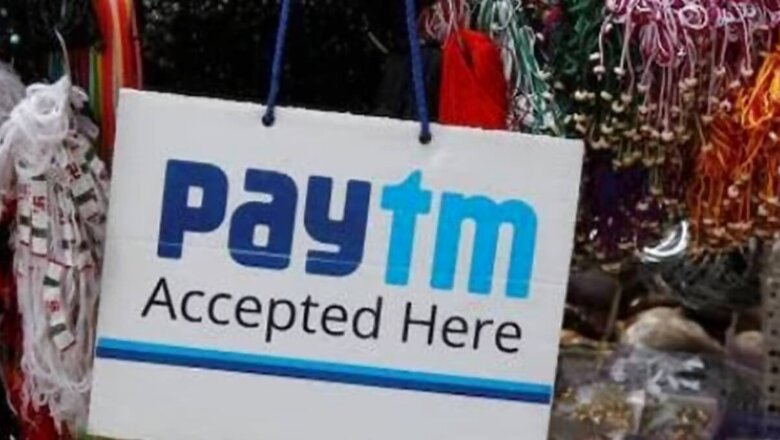
views
According to the most recent shareholding pattern for the quarter that ended March 2024, retail investors held a 14.53 per cent stake in the digital payment platform.
As per the filings, mutual funds held 6.15 per cent of Paytm in the three months ended March 31, up from 4.99 per cent the previous quarter. This includes Mirae Asset Mutual Fund, which increased its holding to 3.76 per cent from 2.51 per cent in the previous quarter, and Nippon India Mutual Fund, which increased its stake to 1.66 per cent.
This resulted in a rise of 0.8 per cent to 4,35,68,764 shares in the total holdings held by domestic institutional investors, which includes insurance firms and alternative investment funds.
Meanwhile, provident funds or pension funds, which previously held a 0.05 per cent ownership, appear to have exited, while non-resident Indians (NRIs) purchased extra shares, accounting for 0.85 per cent of the total in the quarter.
Furthermore, the growing interest from domestic institutions comes as One 97 Communications (Paytm) shares have continued to plummet since the RBI’s ban on its banking partner business, Paytm Payment Bank Limited (PPBL), was announced on January 31. Since the order, Paytm’s share price has dropped by 50 per cent, bringing the company’s market capitalisation down to Rs 25,600 crore.
Details on Foreign Portfolio Investment:
Foreign institutions currently own 60.40 per cent of the fintech company, down from 63.72 per cent a year ago. This is due to a decrease in foreign direct investment (FDI) in Paytm, despite the fact that Foreign Portfolio Investors (FPIs) Category 1 and 2 increased their ownership to over 15 million shares.
While other companies, such as Saif Partners, Resilient Asset Management, and Antifin—which Jack Ma founded—kept holding around the same number of shares, Softbank (SVF India Holdings (Cayman) Limited) further decreased its position to 1.40 per cent in Q4FY24.
When new investors joined the FPI category, Paytm’s prior foreign institutional investors—BNP Paribas Arbitrage and Canada Pension Plan Investment Board—left. Tiger Pacific Master Fund, based in New York and Hong Kong, entered the market during the quarter with 65,79,135 shares, or 1.04 per cent of the total.



















Comments
0 comment